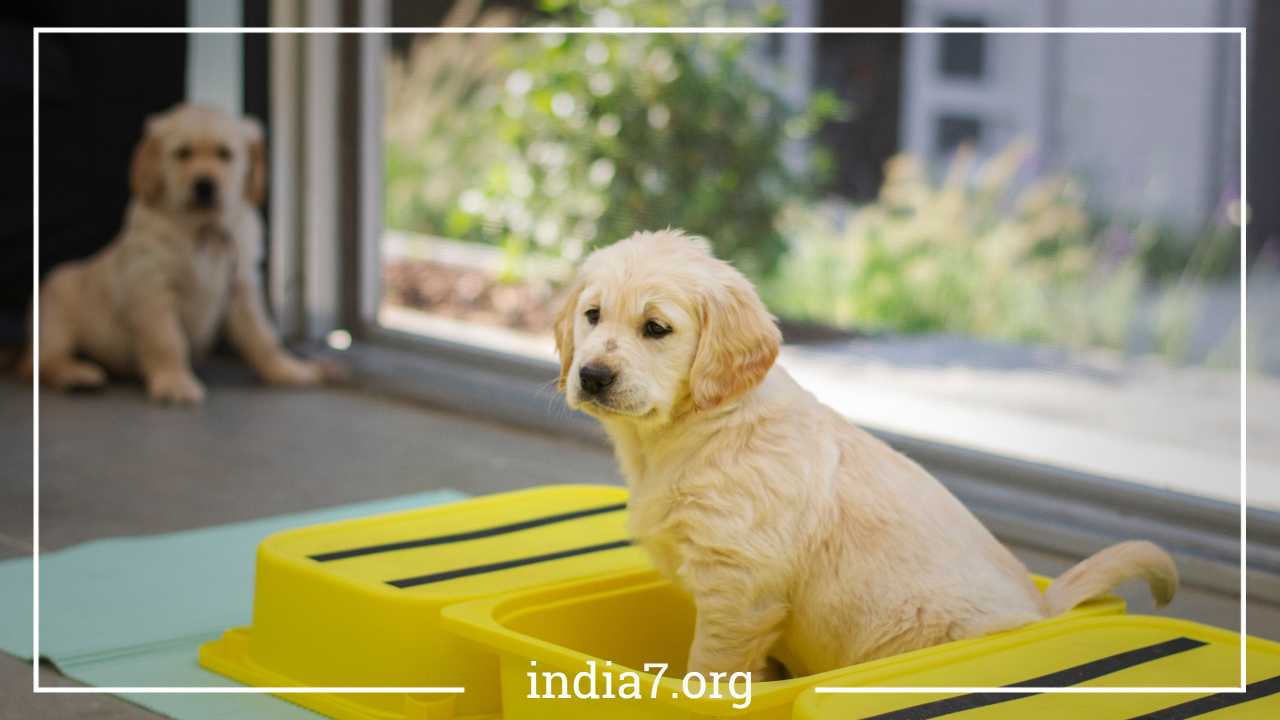Guide to Buying and Raising a Healthy Golden Retriever Puppy

Golden Retriever Puppy
Golden Retrievers, with their charming looks, exceptional obedience, and friendly nature, have secured their place as one of the most beloved dog breeds worldwide. Whether you’re looking for a loyal family companion, a hunting partner, or even a service dog, Golden Retrievers are often a top choice. In this comprehensive guide, we will delve deeply into the process of acquiring and raising a healthy Golden Retriever puppy.
1: Understanding Golden Retrievers
Before taking the leap into Golden Retriever ownership, it’s essential to understand the breed thoroughly. Golden Retrievers are medium to large-sized dogs known for their striking golden coats. They are renowned for their friendly and affectionate disposition, making them excellent family pets. Their intelligence and eagerness to please also make them highly trainable, which is why they excel as working dogs in various roles.
Golden Retrievers are versatile, serving as guide dogs for the blind, search and rescue dogs, therapy dogs, and even competitors in dog sports like obedience and agility. Their adaptability and willingness to learn make them an ideal choice for various purposes.
2: Preparing for Your Golden Retriever
Acquiring a Golden Retriever puppy is a long-term commitment that requires thorough preparation. Here are the steps to consider:
- Research: Begin by researching the breed’s characteristics, exercise needs, and health requirements. Understanding what it takes to care for a Golden Retriever is vital.
- Budget: Assess your financial situation and create a budget for the initial purchase, ongoing expenses, and potential veterinary bills.
- Living Space: Ensure you have a suitable living space for a Golden Retriever. They need enough room to move around comfortably, both indoors and outdoors.
- Family Agreement: Discuss the decision with your family and ensure everyone is on the same page regarding responsibilities and expectations.
- Choosing a Breeder: Carefully select a reputable breeder or rescue organization. This process involves thorough research, checking references, and visiting the breeder’s facilities.
- Puppy-Proofing: Puppy-proof your home by removing potential hazards and providing appropriate toys and supplies.
3: Finding the Right Golden Retriever Puppy
Once you’ve prepared yourself and your living space for a Golden Retriever, it’s time to find the perfect puppy. Here’s what to consider:
- Breeder Selection: Choose a breeder who is dedicated to the breed, follows ethical breeding practices, and prioritizes the health and well-being of the puppies.
- Health Screening: Ensure the breeder conducts health screenings for genetic conditions common in Golden Retrievers, such as hip dysplasia, elbow dysplasia, and heart issues.
- Meeting the Parents: Ideally, you should meet the puppy’s parents to assess their temperament and overall health.
- Puppy Evaluation: Observe the litter and choose a puppy that matches your preferences regarding temperament, energy level, and personality.
- Health Records: Request copies of the puppy’s health records, vaccinations, and deworming treatments.
4: Bringing Your Golden Retriever Puppy Home
Bringing your new Golden Retriever puppy home is an exciting but crucial phase. Here’s what you should do:
- Initial Vet Visit: Schedule an immediate vet visit to confirm the puppy’s health and establish a vaccination and preventive care plan.
- Puppy-Proofing: Reiterate the importance of puppy-proofing your home. Remove potential hazards and create a safe space for your new addition.
- Socialization: Begin socializing your puppy early by exposing them to various people, environments, and experiences.
- Training: Start basic training with commands like sit, stay, and come. Positive reinforcement training methods work best with Golden Retrievers.
- Nutrition: Feed your puppy a high-quality puppy food recommended by your vet, and establish a regular feeding schedule.
- Exercise: While puppies need exercise, be mindful not to overexert them due to their developing bodies. Short, frequent play sessions are ideal.
5: Nurturing Your Golden Retriever’s Health
Ensuring your Golden Retriever’s long-term health and well-being is a top priority. Here’s how to do it:
- Regular Vet Checkups: Schedule routine veterinary visits to monitor your dog’s health, vaccinations, and preventive care, including heartworm and flea/tick prevention.
- Nutrition: Maintain a balanced diet appropriate for your dog’s age, weight, and activity level. Consult your vet for dietary recommendations.
- Exercise: Golden Retrievers are active dogs that require daily exercise. Engage in activities like walking, playing fetch, and swimming.
- Mental Stimulation: Provide mental stimulation through puzzle toys, training sessions, and interactive games to keep your dog’s mind sharp.
- Grooming: Regular grooming is essential, including brushing, nail trimming, ear cleaning, and dental care.
- Health Insurance: Consider pet health insurance to help cover unexpected veterinary costs.
6: Building a Strong Bond with Your Golden Retriever
Golden Retrievers are known for their loyalty and affection. Building a strong bond with your dog is not only rewarding but also beneficial for their well-being:
- Quality Time: Spend quality time with your dog through play, cuddling, and training sessions.
- Positive Reinforcement: Use positive reinforcement to reinforce good behavior and strengthen your dog’s trust in you.
- Training: Continue training throughout your dog’s life to ensure they are well-behaved and responsive to commands.
- Exercise: Keep your dog physically and mentally stimulated through regular exercise and new experiences.
- Routine: Establish a daily routine to provide structure and stability for your dog.
7: Golden Retriever-Specific Considerations
Golden Retrievers have unique characteristics that require special attention:
- Shedding: Be prepared for regular shedding, especially during seasonal changes. Brush your dog’s coat to minimize loose hair.
- Love of Water: Many Golden Retrievers love water, so consider activities like swimming or playing in a kiddie pool to keep them happy.
- Sensitivity: Golden Retrievers are sensitive dogs, so use positive reinforcement and avoid harsh training methods.
8: Common Health Issues and Preventive Measures
Golden Retrievers are prone to certain health issues, but proactive measures can help:
- Hip and Elbow Dysplasia: Regular exercise, a healthy diet, and maintaining a healthy weight can reduce the risk of these joint problems.
- Heart Conditions: Regular veterinary checkups can detect and manage heart issues.
- Cancer: While some cancers are genetic, a healthy lifestyle, early detection, and regular vet visits can make a difference.
9: Golden Retriever Community and Resources
Being part of the Golden Retriever community can be enriching. Consider joining local clubs, online forums, or social media groups dedicated to Golden Retrievers. These communities can offer support, advice, and a sense of belonging.
Final Remarks
Acquiring and raising a Golden Retriever puppy is a rewarding journey that involves careful preparation, commitment, and ongoing care. By understanding the breed, choosing a reputable breeder, and providing proper training and health care, you can enjoy a fulfilling and loving companionship with your Golden Retriever for many years to come. Remember that your Golden Retriever is not just a pet; they are a cherished member of your family, deserving of your time, attention, and devotion.



